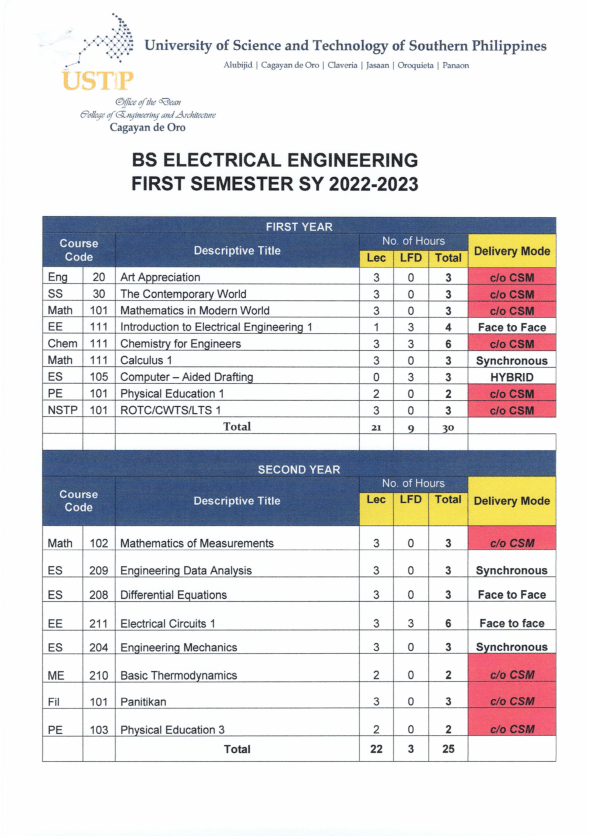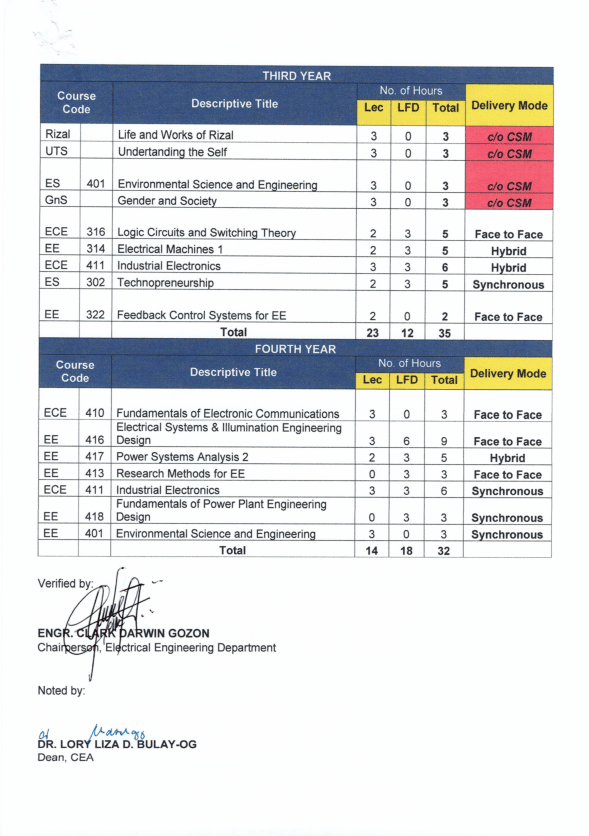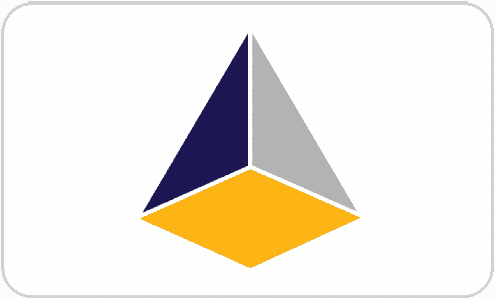MODALITY OF CLASSES



ELECTRICAL ENGINEERING EVENTS
ABOUT THE PROGRAM
Bachelor of Science in Electrical Engineering (BSEE) is an undergraduate program that deals with electricity generation, transmission, distribution, and utilization. With such scope, the program includes important topics regarding the conceptualization, development, design, and application of safe, healthy, ethical, economic, and sustainable generation, transmission, distribution, and utilization of electrical energy through the knowledge of mathematics, physical science, and other allied sciences, gained by study, research and practice.
PROGRAM OUTCOMES
a. Apply knowledge of mathematics, sciences, and engineering fundamentals to solve complex engineering problems relevant to the field of electrical engineering practice.
b. Identify, research literature, analyze complex electrical engineering problems and formulate solutions using principles of mathematics and engineering sciences.
c. Design, implement, and evaluate systems, components, or processes to meet desired needs and requirements within realistic constraints such as economic, environmental, social, political, ethical, health and safety, manufacturability, and sustainability, in accordance with standards
d. Conduct investigations of complex problems using research-based knowledge in designing and conducting experiments, as well as to analyze and interpret data in electrical engineering fields specifically on power systems, power electronics, renewable energy, and power economics.
e. Create, select, and apply current techniques, skills, modern engineering
and IT tools necessary for electrical engineering practice within the specified constraints.
f. Discuss current issues based on appropriate knowledge involving societal, health, safety, and professional, ethical, legal, and cultural concerning the practice of electrical engineering.
g. Evaluate the effects of electrical engineering solutions in a comprehensive societal, economics and environmental context for sustainable development goals.
h. Apply ethical principles and recognize professional, social, and ethical responsibility for the practice of electrical engineering profession.
i. Develop proficiency in business and technical communication using local and emerging foreign languages, and internationally accepted Electrical Engineering standards.
j. Work effectively as an individual and as a member or a leader in a trans– disciplinary and multi–cultural team, recognizing the different roles within a team to accomplish a common goal.
k. Recognize the need to be updated of the developments in the specific field of the electrical engineering practice and be prepared to engage in independent and life – long learning.
l. Use engineering and management principles as a member or a leader in a team, to manage projects and in multidisciplinary environment.
m. Participate in the generation of new knowledge and advancement of existing knowledge, in research and development projects, and in technopreneurial activities in the areas of power systems, power electronics, renewable energy, and power economics aligned to regional and national development agenda or goals.
n. Preserve and promote the Filipino historical and cultural heritage
CAREER OPPORTUNITIES
- Power Engineer – Power System Operation, Power System Protection, Power System Economics, Power Plant
- Design Engineer – Advance Power System, Advance Electrical Designer, Machine Automation and Process Control Designer
- Illumination Engineer
- Entrepreneur
- Sales Engineer
- Distribution Engineer
- Engineering Educators and Researchers
- Instrumentation and Control Engineer
- Safety Engineer
- Maintenance Engineer
- Construction and Project Engineer
- Software Developer
- Electrical Design Inspector Consultancy
















